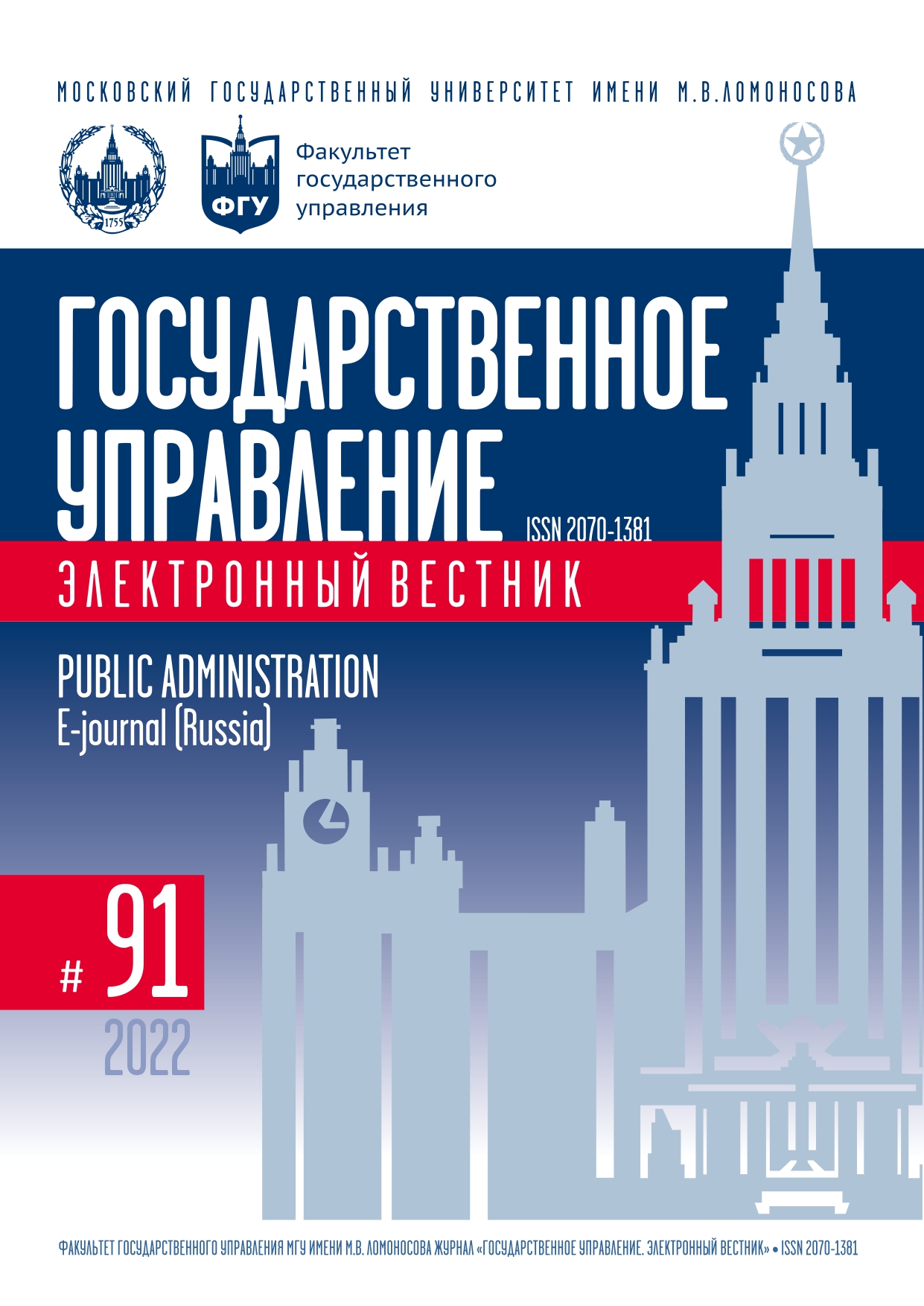Prospects for Economic Development of the USSR in Pre-Perestroika Period as Assessed by Foreign Analysts
Keywords:
Planned economy, economic capacity, economic policy, scenarios, Sovietology, efficiency, economic reform, retrospectiveAbstract
The works of foreign researchers related to the pre-perestroika period of the USSR, pay considerable attention to the analysis of the prospects of further development of the USSR economy in the context of the obvious decline in economic growth rates. The prospects of economic development of the USSR were discussed by many well-known Western analysts, such as Alec Nove, Michael Ellman, Hans-Hermann Höhmann and others. The works of these analysts allow clarifying the possible ways of development of the Soviet economy before perestroika in relation to the prevailing views in the domestic research literature, as well as assessing the prognostic potential of foreign Sovietology. At the same time, of course, it should be taken into account that adherence to ideological imperatives was to some extent inherent not only to domestic, but also to foreign researchers. The work uses general scientific methods of research, as well as methods of historical and economic analysis. The sources of information were the data of official statistics and the works of foreign analysts. Analysis of foreign works shows that Western researchers mainly supported the points of view according to which conservative modernization, the neo-Stalinist model, liberal modernization, and broad liberal modernization could be the development models for the Soviet economy. At the same time, conservative modernization was assumed to be the most likely development scenario. As a result of the analysis, it was found that most reputable foreign Sovietologists did not assume the elimination of the planned system in the USSR in the coming years and believed that it could last
another 10–15 years without major upheavals.
References
Дроздов В.В. Влияние китайского опыта на экономические реформы в СССР в период перестройки: дискуссия в зарубежной литературе // Современные информационные технологии и процессы. Выпуск 2: Коллективная монография. М.: Изд-во «Экон-Информ», 2021. С. 86–99.
Сидоров А.В. Нарастание кризисных явлений в экономике СССР: оценка руководством страны (осень 1989 года) // Государственное управление. Электронный вестник. 2021. № 87. С. 48–60. DOI: 10.24412/2070-1381-2021-87-48-60
Чжуан Ш. Рец. на: C. Miller. The Struggle to Save the Soviet Economy: Mikhail Gorbachev and the Collapse of the USSR. Chapel Hill: University of North Carolina Press, 2016 // Российская история. 2020. № 5. C. 229–233. DOI: 10.31857/S086956870012217-9
Cattell D.T. Die Probleme der Konsumgüterversorgung in der UdSSR // Modernisierungsprobleme in der Sowjetunion: ausgewählte Beiträge zum Zweiten Weltkongress für Sowjet- und Osteuropastudien / herausgegeben von G. Brunner und H. Herlemann. Berlin: Berlin Verlag, 1982. S. 38–56.
Ellman M. Socialist Planning. Cambridge: Cambridge University Press, 2014. DOI: https://doi.org/10.1017/CBO9781139871341
Hanson P. Success Indicators Revisited: The July 1979 Soviet Decree on Planning and Management // Soviet Studies. 1983. Vol. 35. Is. 1. P. 1–13.
Harrison M. Coercion, Compliance, and the Collapse of the Soviet Command Economy // The Economic History Review. 2002. Vol. 55. Is. 3. P. 397–433. DOI: https://doi.org/10.1111/1468-0289.00226
Harrison M. The Soviet Economy, 1917–1991. Its Life and Afterlife // The Independent Review. 2017. Vol. 22. Is. 2. P. 199–206.
Höhmann H.-H. «Radikale Reform»? Zum Kurs sowjetischer Wirtschaftspolitik nach dem XXVII. Parteitagder KPdSU // Osteuropa. 1986. Vol. 36. Is. 8/9. P. 620–630.
Höhmann H.-H. Sowjetische Wirtschaft 1981/82: Wirtschaftslage, Stand des 11. Fünfjahresplans, Entwicklungsperspektiven, alternative Modelle der Wirtschaftspolitik. Köln: Bundesinst. f. ostwiss. u. intern. Studien, 1982.
Holzman F.D. The Performance of the Soviet Economy: Past, Present and Future. New York: Foreign Policy Association, 1982.
Miller C.R. The Struggle to Save the Soviet Economy: Mikhail Gorbachev and the Collapse of the USSR. Chapel Hill: University of North Carolina Press, 2016.
Nove A. The Soviet Economic System. Winchester, MA: Unwin Hyman Inc., 1986.
Robinson N. Explaining Soviet Collapse // Contemporary Russian Politics. 2017. DOI:10.13140/RG.2.2.29620.76167
Suhara M. Russian Agricultural Statistics // RRC Working Paper Series. 2017a. № 67. URL: https://www.ier.hit-u.ac.jp/rrc/English/pdf/RRC_WP_No67.pdf
Suhara M. Russian Industrial Statistics // RRC Working Paper Series. 2017b. № 66. URL: https://hermes-ir.lib.hit-u.ac.jp/hermes/ir/re/28396/RRC_WP_No66.pdf
Trachtenberg M. Assessing Soviet Economic Performance during the Cold War: A Failure of Intelligence? // Texas National Security Review. 2018. Vol. 1. Is. 2. P. 77–101.
Zweynert J. Shestidesyatniki Economics, the Idea of Convergence, and Perestroika // History of Political Economy. 2019. Vol. 51. Is. S1. P. 277–299. DOI: https://doi.org/10.1215/00182702-7903336

